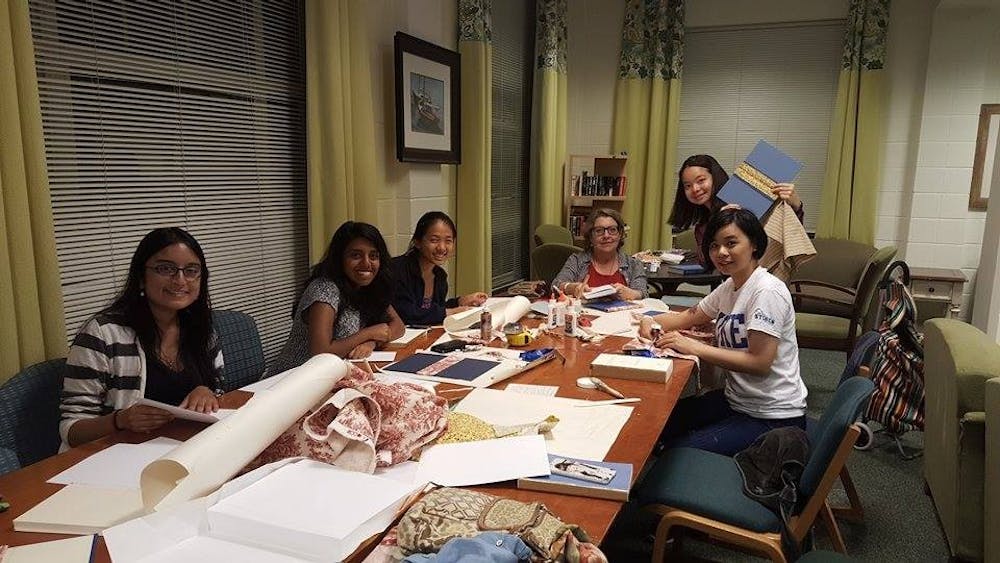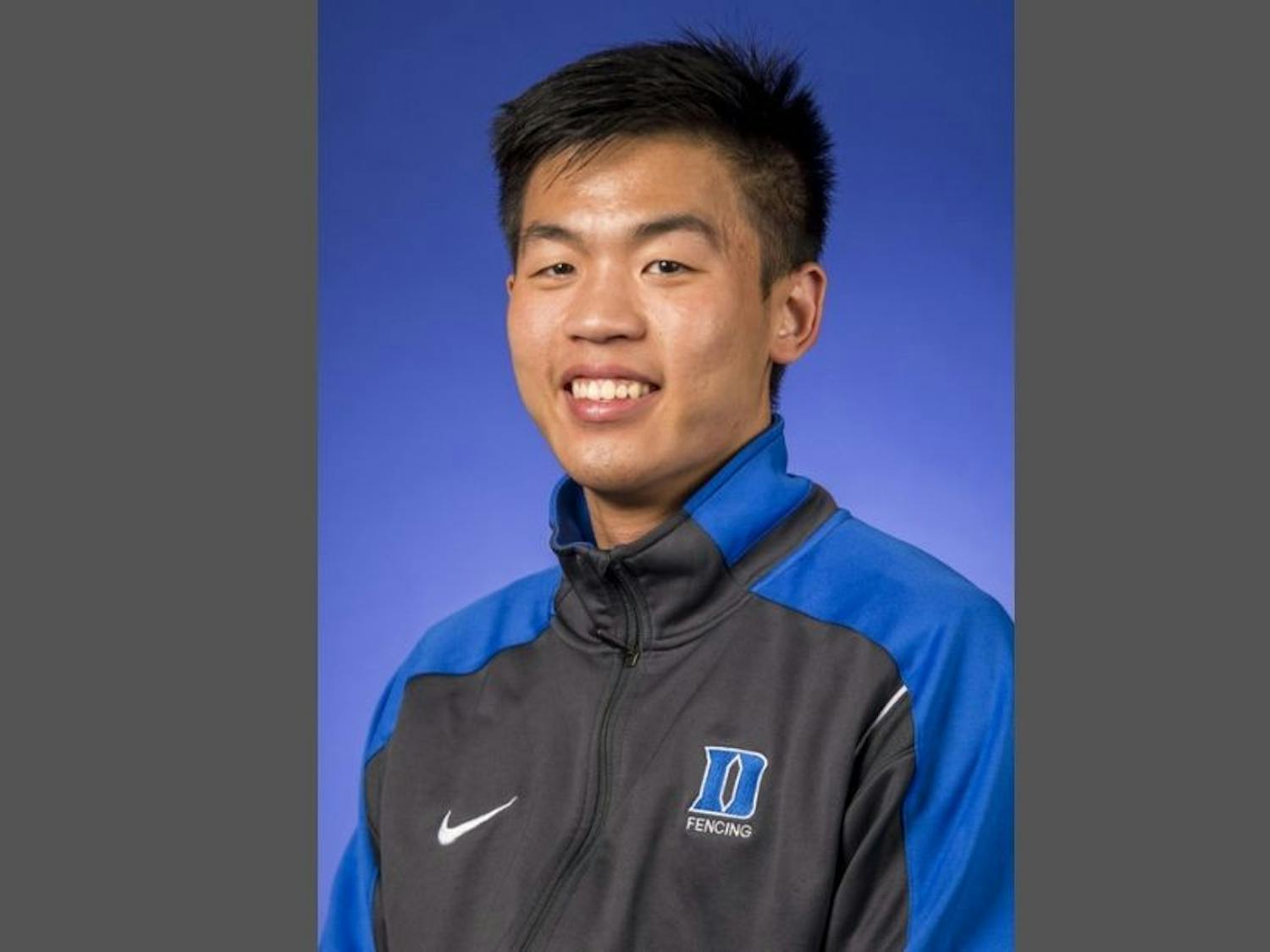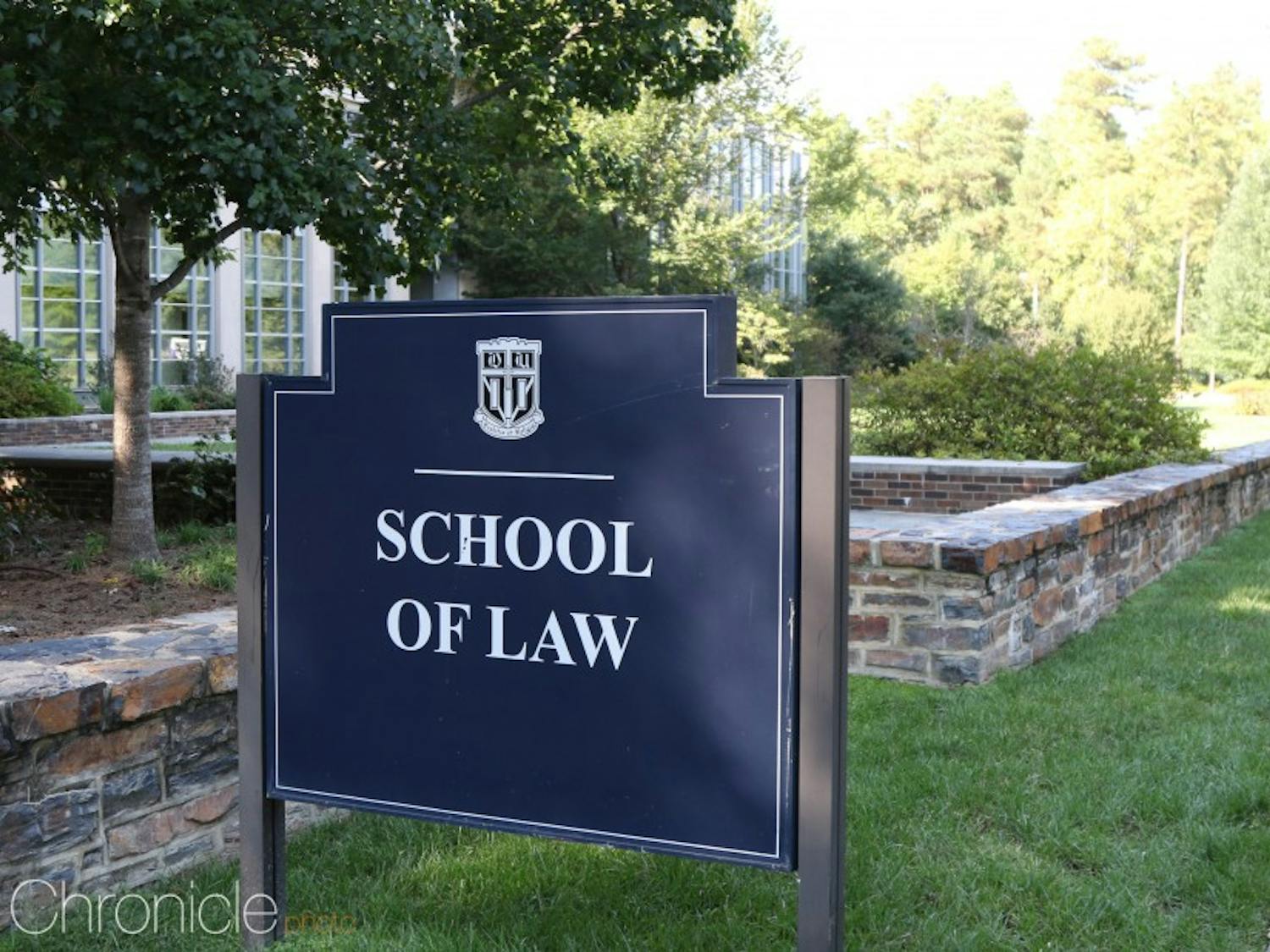“What? You’re going to live in a dorm room?”
Helen Gordon’s sons’ reacted to the news she would be living among freshmen at Duke how one might expect. However, for those who claim the title “faculty in residence"—professors who reside in East Campus dorms—forming better relationships with undergraduates is the best part of the job.
Gordon, assistant professor in the school of nursing, has lived in Randolph since 2011, serving as a resource for freshmen who need academic guidance, homework help or simply someone to talk with.
“I had a great college experience myself, so every Fall I get to relive that,” she said.
The faculty in residence program began in 1982 with two FIRs—philosophy professor Ben Ward and Bruce Payne from the public policy department—each residing in a freshman house on East Campus.
At the time, the goal of the initiative was “to encourage broader participation of faculty members and their families in the daily life of the campus,” wrote Deborah Johnson, assistant vice provost for undergraduate education, who oversees the FIR program, in an email.
Since then, the program expanded and became more competitive, with 12 FIRs currently living on East Campus and one on West Campus in a dormitory on Few Quad.
“My role is to help [freshmen] break the barriers between them and the faculty,” said Zbigniew Kabala, an associate professor of civil and environmental engineering who lives in Southgate with his wife and dog.
A major aspect of the program is hosting events for freshmen. Duke helps fund these events by giving FIRs $750 to use for programs and 500 food points to treat students to meals.
Kabala explained he has taken his students on field trips to research sites in the Duke Forest and to the local landfill to learn about sustainability, as well as on white water rafting trips.
In addition, he tries to share meals with students whenever possible at vendors including Blue Express, Divinity Cafe and Marketplace.
Gordon said she also enjoys taking students to meals, especially off-campus.
“When you eat with people, there’s some level of established similarity that occurs over food, a common bond,” she said.
Gordon explained that she tries to engage students in activities she also enjoys doing, instead of forcing some kind of educational program on them. Last year, she hosted a craft night where students could make journals. She also offered to take several to see a movie off-campus.
The most popular activity last year was an apple pie bake-off, which attracted mostly male students to Gordon’s surprise. After completing the recipes, students were able to share their desserts with the whole dorm.
“I think I’m getting better at inserting myself into their world,” Gordon said.
Finding ways to connect with freshmen is one of the main challenges of the job, noted Hwansoo Kim, associate professor of religious studies and the sole faculty-in-residence on West Campus.
Because his events have to compete with the numerous other extracurricular activities that students are involved in, Kim said that he tries to make his gatherings creative and unique. He and his wife Sumi host a “Snack Attack” each week in which they make homemade food for the students.
He also organizes guest speakers and workshops on skills that students will need in life after college such as how to buy and repair a car and how to have a happy marriage.
“We want to do topics that students might not get in the classroom but will need for a happy, successful life,” Sumi Kim said.
In his events, Kabala said he does not shy away from tough topics and has hosted discussions about abortion, affirmative action and religion.
Junior Sarah Walker, a resident advisor who lived in Southgate last year, noted her favorite FIR activity was Kabala's weekly open houses.
"We talked about anything and everything from Duke scandals, to midterms, to our favorite shows," she wrote in an email. "It was definitely the highlight of my week."
Sumi Kim said her and her husband's role as FIRs on West Campus differs than those on East because they focus on helping students with issues after graduation, instead of adjusting to college.
As the only FIRs on West, Sumi Kim said they serve as a “local” resource for the general population of students on West, not just those in Few. One of the best parts of living on West is being able to sustain connections with students all three years as they “evolve and blossom” from sophomores into seniors, she explained.
Hwansoo noted he and his wife had always wanted to live on campus with students, having both grown up in big communities. When he heard about the FIR program after landing a job at Duke, he quickly applied. After seven years in the position, he said he loves getting to know the wide variety of people on campus, from students to faculty to the housekeeping staff.
Kabala similarly applied for the role because of the sense of community it provided. After his kids left for college, he said he felt lonely and when a FIR apartment opened up, it “seemed like something worth trying.”
His close proximity to Durham and his office are big pluses of the FIR job, he added. Although often, his work follows him home. He frequently helps students with their physics and math homework problems, if they knock on his door.
Like Kim, Gordon’s job skills also make her an asset to the freshmen. As a registered nurse and a mother of two boys now in their 20s, she is the perfect person for students to contact when they fall sick for the first time away from home.
She said she has helped students get to the pharmacy, emergency room and urgent care facilities during her time as a FIR.
The application process for her to become a FIR was very competitive, Gordon said, noting that she thinks the average FIR stays for five or six years.
A document on Duke's undergraduate education website explains that the initial commitment for a FIR is three years with the ability to renew for another three-year appointment and then two-year appointment increments after that. FIRs are required to live in their residence hall apartment during the academic year but not during the summer.
In addition, Duke provides unfurnished apartments and utilities at no cost to the FIRs. If they are regular rank faculty in Arts and Sciences, participating in the program will count toward the accelerated leave policy.
However, they still have to pay for an East Campus parking permit.
Johnson explained the number of FIR applications each year depends on the number of openings they have. Last year, no positions were available.
However, she said that she keeps a list of faculty members who are interested in serving as FIRs in case a position opens up unexpectedly, which happened recently when Sumathi Ramaswamy—professor of history and FIR for Giles—and her husband unexpectedly found a house to buy in Trinity Park and decided not to return.
The process for choosing a FIR involves Johnson, Dean for Residential Life Joe Gonzalez and Steve Nowicki, dean and vice provost for undergraduate education. The trio reviews applications and then interview the top candidates.
Johnson explained that candidates must have an enthusiasm for spending time with students to be chosen.
“It helps if the individual is a 'night owl' and not an ‘early riser’ since student schedules somewhat dictate that events and programs need to be held at night,” she wrote.
In addition, having a flexible schedule and pockets of free time to spend with students is a must, Gordon noted. Living in close proximity with 18 and 19-year-olds requires a high level of tolerance for noise and disturbances, as well.
Gordon recalled an instance last year when several boys living in the dorm next to her apartment would bounce a ball all the time, often into the late hours of the night. She said that she tolerated the noise until 2 a.m. but then walked down the hall to ask them to stop.
“If [being a FIR] wasn’t my job, I could be really upset, but I can’t do that,” she said.
Johnson noted that having small children or a dog is an “added bonus” that can help draw students to a FIR’s events.
When Gordon first applied for the position, she said that she asked what would increase her chances of landing the gig. After learning that having a pet would improve her odds, she went out and adopted a rescue dog who “has been quite a hit.”
Kabala has a popular pet as well, a terrier named Oscar, who is the center of attention for students who miss their animals at home. He noted the open space for Oscar to run around on East Campus is one of his and his wife’s favorite parts of living on campus.
Duke’s campus also serves as home to Hwansoo and Sumi Kim’s two children, ages eight and 10, who have grown up in the FIR program. Hwansoo said he regards the fact that his kids get to live among Duke scholars as one of the perks on the job.
“They get exposed to amazing human beings,” he said, noting that his kids both now want to attend college at Duke.
The FIRs noted very few complaints with living in close proximity to college students. Sumi Kim explained that there is surprisingly little noise and that when students host parties or events, they often warn her in advance.
For Kabala, “the pluses dominate,” he said. He has even gotten used to hearing students constantly.
“Now I can’t sleep without rock-n-roll music at three in the morning,” he joked.
He noted that the most rewarding part of being a FIR is the connections he gets to form with students. He said that he interacts with about 30 on a regular basis and has close relationships with about 10 of them, although he attempts to at least learn everyone’s name.
“If I can say, ‘Hi Susan,’ she feels right away that I know her and is much more comfortable knocking on my door if she needs me,” Kabala said.
Gordon said she can hardly go anywhere on campus without running into former students. She even recently had a student house-sit for her while she traveled to Alaska.
FIRs bridge the gap between faculty and students and provide essential guidance to freshman, Walker explained.
"I truly believe that FIRs encourage students to take advantage of their Duke experience in open themselves up in ways they may otherwise have not," she said.




